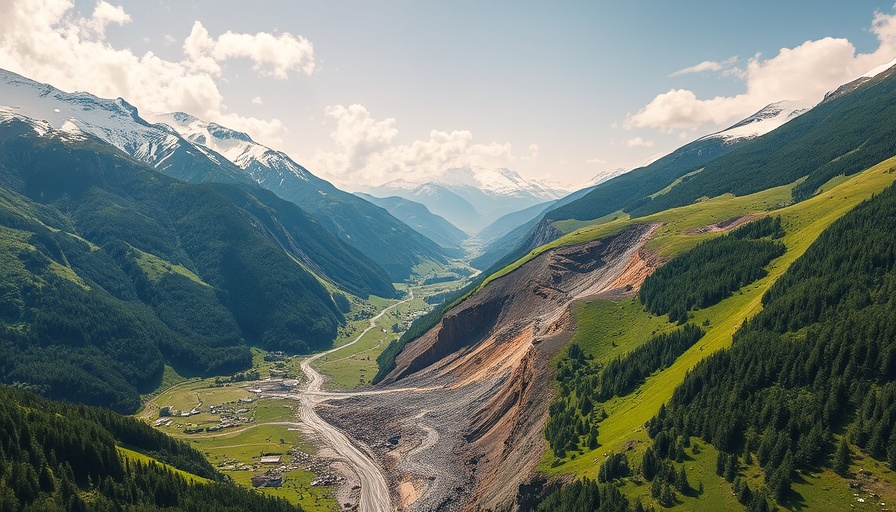
Unprecedented Glacier Collapse Strikes Swiss Village
In a shocking turn of events, the picturesque village of Blatten, nestled within the Swiss Alps, suffered a devastating blow as an enormous chunk of ice and rock plummeted from the Birch Glacier, burying approximately 90% of the community under layers of mud and debris. The tragedy unfolded on May 28, 2025, just days after the village had been preemptively evacuated due to rising concerns over the stability of the glacier, a decision that likely saved lives.
What Led to the Collapse?
Geologists had been warning residents about the potential risks posed by the Birch Glacier, which has been increasingly unstable due to global climate changes. The collapse, attributed to high-altitude snowmelt and falling rocks, released an estimated 100 million cubic feet of materials, including ice, rock, and mud, cascading over a mile and creating a massive landslide. Mylène Jacquemart, a glaciologist from the Federal Institute of Technology in Zürich, explained, “The rock slope above the glacier started to crack apart and fall down,” indicating a clear cause for the glacier’s failure.
Impact on the Community
According to local officials, the destruction is extensive—nearly the entire village has been impacted. Mayor Matthias Bellwald expressed profound sadness over the losses, stating, “We have lost our village,” and appealing for support in rebuilding efforts. Thankfully, as of now, there have been no confirmed fatalities, though one person remains unaccounted for amid the chaos.
Wider Implications of Climate Change
This tragic incident in Blatten serves as a poignant reminder of the looming threat climate change poses to fragile ecosystems and communities worldwide. As glaciers retreat at an alarming rate, resulting flooding, landslides, and other natural disasters are become more frequent. Local ecologists have linked these events to the broader issue of rising global temperatures, leading to rapid snowmelt and destabilizing permafrost—a critical component that maintains geological stability in mountainous regions.
Lessons for Boutique Hospitality Professionals
For boutique hospitality professionals operating in eco-conscious lodging businesses, this event drastically underscores the importance of sustainability and environmental awareness. Managing small-scale hotels or eco-lodges in areas susceptible to climate change requires innovative strategies. Implementing practices such as chaos gardening—growing food in less controlled environments—and prioritizing the use of biodegradable materials can be crucial in promoting resilience against climate-related disruptions.
Conclusion: A Call to Action
The recent glacier collapse in Blatten exemplifies the urgent need for heightened climate awareness. As professionals in the hospitality sector, understanding the implications of such natural disasters not only aids in the immediate rebuilding efforts but fosters long-term strategies for sustainability and community resilience. It’s vital now more than ever to align business practices with environmental benefits to protect our planet and communities.
 Add Row
Add Row  Add
Add 




Write A Comment